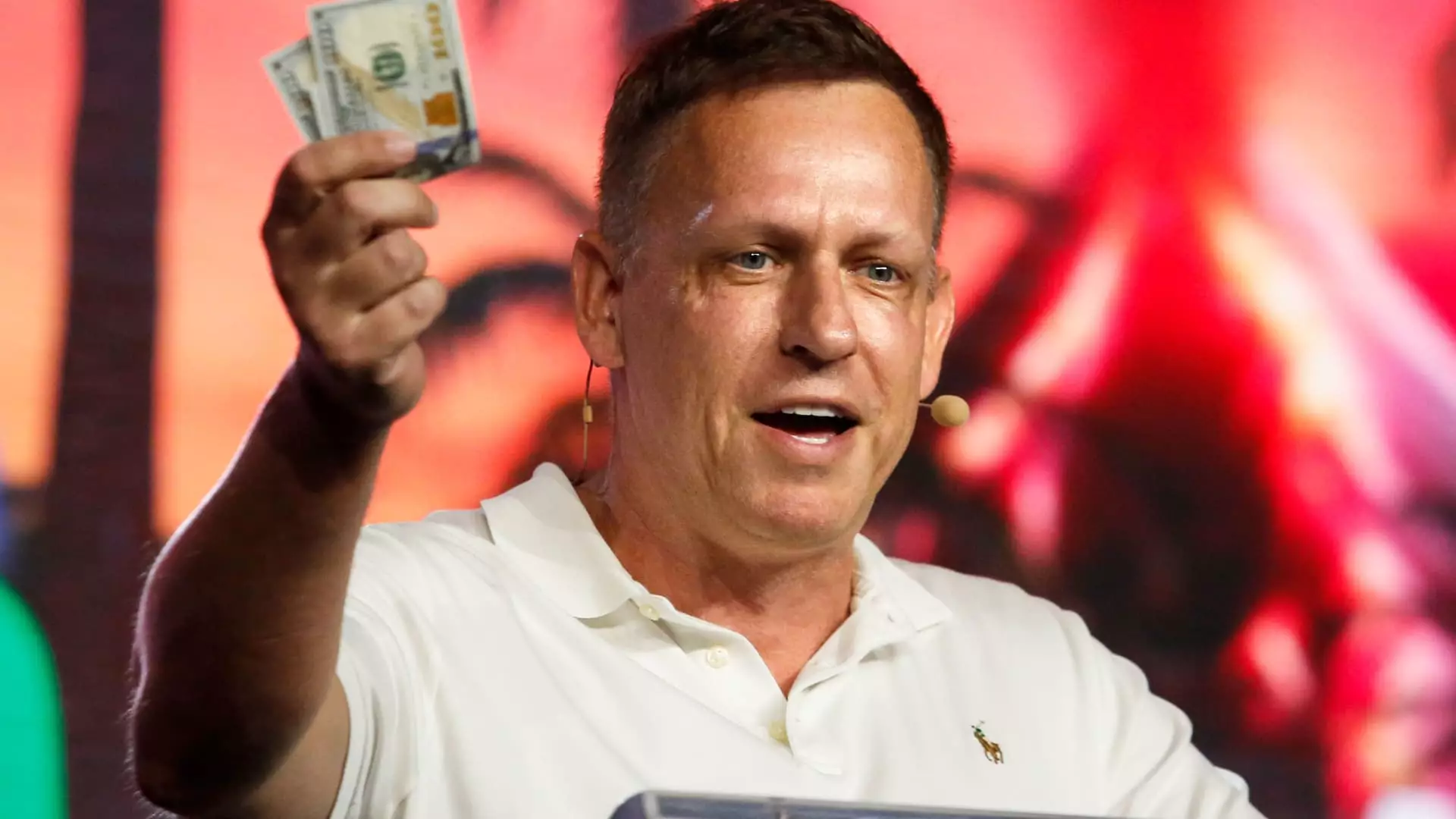In an age where capital reigns supreme and the tech industry evolves at a breathless pace, the recent news of Founders Fund’s closing on a massive $4.6 billion late-stage venture fund cannot be ignored. Peter Thiel, a name synonymous with Silicon Valley success, invites us to contemplate not only the staggering figures involved but the overarching impact of this investment on a rapidly changing socio-economic landscape. With involvement from 270 investors, this significant capital injection into late-stage startups will predominantly continue Founders Fund’s trajectory of influence. However, behind this impressive facade lies a complex narrative that warrants scrutiny.
Thiel, alongside co-directors Napoleon Ta and Trae Stephens, offers not just monetary support but a strategic vision that marries cutting-edge technology and ambitious growth. Founders Fund’s history reveals a penchant for nurturing game-changing ventures, from Airbnb and SpaceX to defense tech giants like Palantir and Anduril. Yet, as pivotal as these players are, one begs the question—what ethical responsibilities accompany such immense financial power, especially in industries that intertwine with national security and public welfare?
Caught in the Crossfire: The Risks of Political Volatility
This unprecedented infusion of capital comes at a tumultuous moment in American politics, stirring questions about stability and long-term growth. The tech market has experienced unsettling turbulence, amplified by the fluctuating tariffs announced by President Trump. A pause in new tariffs initially brought a glimmer of hope to the delicately balanced IPO market, yet the ramifications remain uncertain. Founders Fund’s future strategy, leaning heavily on a slew of private investments while the public market sits stagnantly, raises concerns about the sustainability of such a model.
Moreover, this investment landscape is not without its moral dilemmas. Thiel’s involvement in the tech realm, particularly with defense startups like Anduril, purports to bolster national security. However, one wonders whether the ethical implications of amassing such power in the private sector can truly align with the values of a democratic society. Should a handful of individuals and firms dictate the trajectory of technological advancements that could affect millions, potentially without adequate oversight or ethical considerations?
The Dichotomy of Influence: Thiel’s Political Journey
Thiel’s political affiliations add another layer of complexity to this narrative. Once a staunch supporter of Trump, his relationship with the former president has waned, reflecting a growing schism that resonates within the tech community. Many tech leaders rallied behind Trump in the 2016 election, enamored by the promises of deregulation and growth. Yet, as political sentiments shift and market conditions fluctuate, where does Thiel stand? His candid acknowledgment—“If you hold a gun to my head, I’ll vote for Trump”—captures a sentiment that is both revealing and disconcerting. It illustrates a reluctant alignment with a figure whose policies have had real consequences on the financial wellbeing of the tech industry.
The tech landscape is rife with fallouts from political maneuvers, creating trepidation among investors. The deferred IPO plans of firms like Klarna and StubHub highlight tech’s volatile footing amidst economic uncertainty, raising alarms about the stability of an industry increasingly reliant on private funding. Does the loyalty to a political leader take precedence over sound business judgments? This question remains, painting a troubling picture of what may lie ahead.
The Future of Venture Capital: A Balanced Perspective
As Founders Fund expands its influence with this new venture, it serves as a cautionary tale of sorts. While the injection of $4.6 billion may empower innovative companies to thrive, the ethical landscape remains murky. Venture capital should not merely chase immediate fiscal returns but encompass a broader responsibility to society at large. In a world on the brink of rapid technological evolution, can we afford to let a few pivotal players steer our collective future without the accountability that comes with such power?
Ultimately, the case of Founders Fund reveals both the potential and peril embedded in our current economic structure. It calls for not only a reevaluation of who wields power but an urgent dialogue on what ethical frameworks will guide the future of technological innovation.

